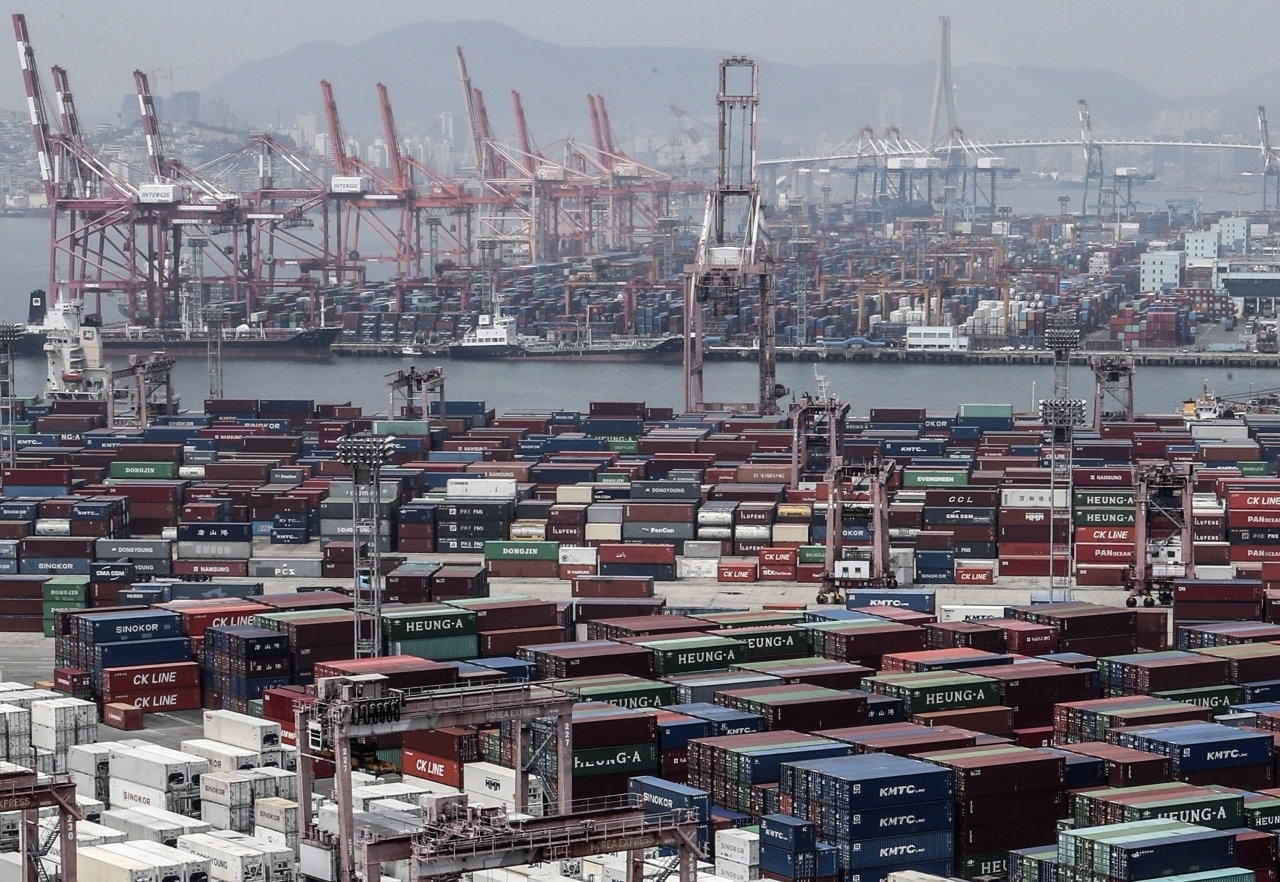 |
Stacks of cargo containers are seen at Korea’s largest seaport in Busan. (Yonhap) |
South Korea’s current account surplus rose to a two-year high last year amid the prolonged economic fallout from the COVID-19 pandemic, mainly due to a sharp fall in imports and overseas trips, central bank data showed Friday.
The country’s current account surplus for 2020 amounted to $75.28 billion -- up $15.6 billion, or 26.1 percent, from the previous year -- according to preliminary figures released by the Bank of Korea.
This marked the highest current account surplus since 2018, when it was $77.46 billion, and was far above the BOK’s projection of $65 billion announced in December.
“The sizable surplus came as imports declined more than exports, triggered by subdued local demand for raw materials like crude oil in the aftermath of the protracted COVID-19 impact,” an official said.
Exports fell by 7.2 percent on-year to reach $516.6 billion led by petrochemical products, automobiles and steel. Outbound shipments of those items respectively shrank 40.3 percent, 11.9 percent and 10.3 percent on-year.
But imports saw an even steeper decline, falling 8.8 percent from the previous year to $434.7 billion, the data showed.
As a result, the goods account surplus -- which measures how much the value of all goods exported surpasses the value of all goods imported -- climbed to $81.9 billion last year, gaining some $2.1 billion on-year.
The service account logged a deficit of $16.1 billion, down 39.7 percent from a deficit of $23 billion in 2019. The narrower deficit was largely attributed to improvements in the travel and transport accounts, the BOK said.
The country’s travel account deficit narrowed sharply to $5.6 billion from a $10.6 billion deficit a year earlier, while the transport account posted a surplus of $2.1 billion over the past year, moving into the black for the first time in five years. It had posted a $4.6 billion deficit in 2015 and remained in the red since that time.
“The country’s current account surplus of $75 billion in 2020 is a remarkable accomplishment in times of the COVID-19 crisis,” said First Vice Finance Minister Kim Yong-beom.
“The nation has fared well compared to other major economies in terms of its current account. Its global competitiveness in goods and services will continue to provide a safety net for the local economy amid the COVID-19 pandemic.”
By Choi Jae-hee (
cjh@heraldcorp.com)







![[Today’s K-pop] Blackpink’s Jennie, Lisa invited to Coachella as solo acts](http://res.heraldm.com/phpwas/restmb_idxmake.php?idx=644&simg=/content/image/2024/11/21/20241121050099_0.jpg)
